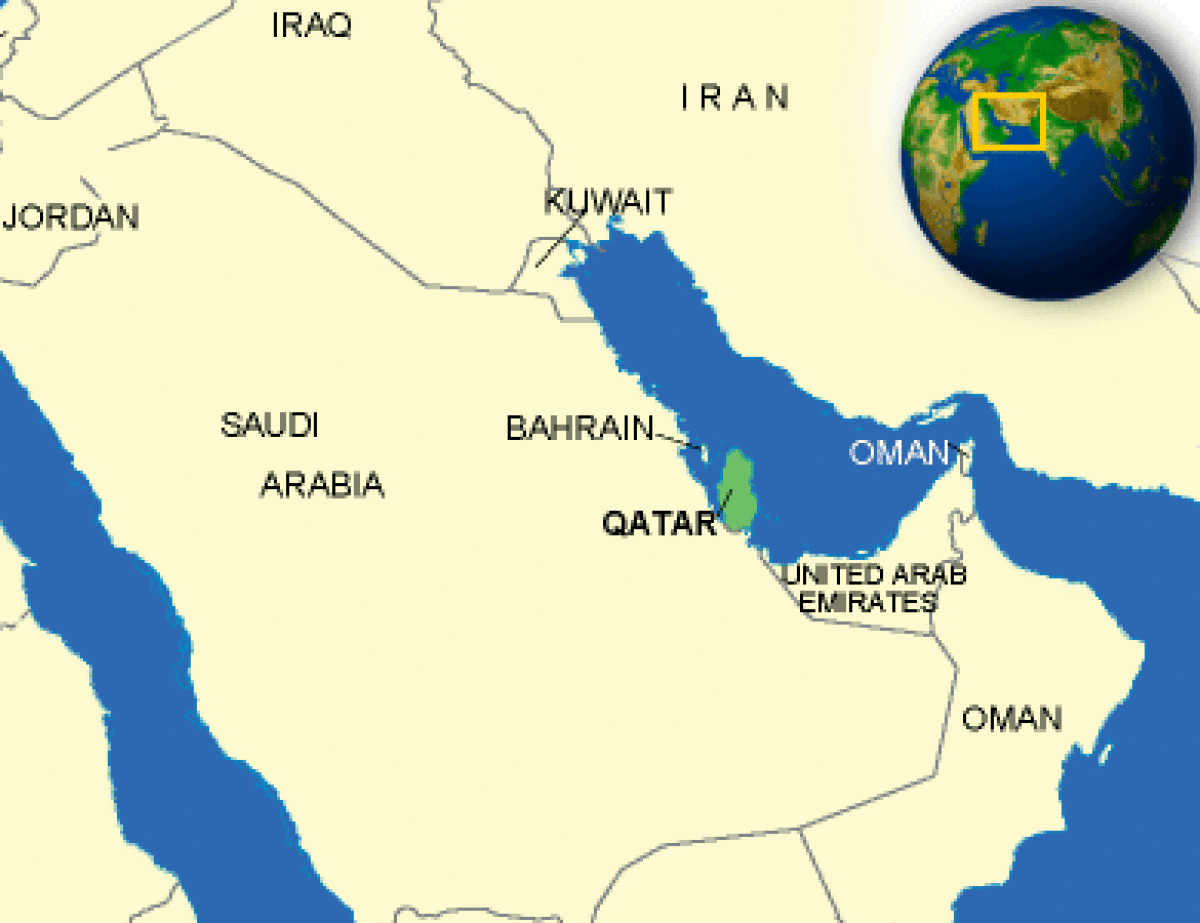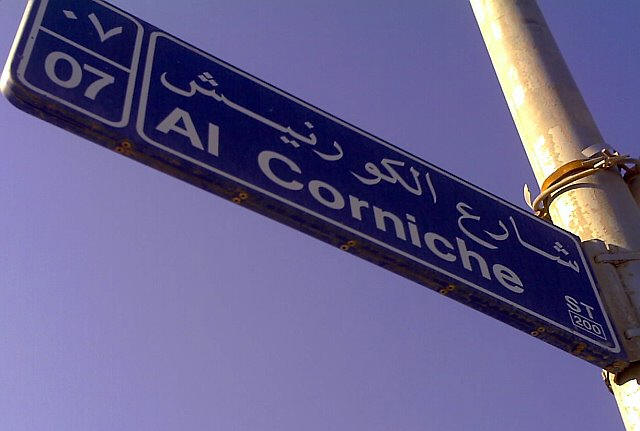It’s a weird word
how we spell it in English. It violates that one rule about a q always being followed by a u. And how do you pronounce it? I’ve
heard it pronounced as “cutter” for years and even pronounced it that way for a
long time. However, I did a little research earlier and found a clip from NPR’s
“All Things Considered” about the pronunciation of Qatar and came to the
conclusion that it’s most likely pronounced as “kuh-TAR,” rhyming with
“guitar.”
Roman writers were
well aware of this peninsula, and Pliny the Elder is credited as the first
European to give it the name Catharrei, possibly named after some town.
However, Ptolomy was the first to draw a map of the area and label it as
Catara. During the 18th century, it was labeled as Katara, and today
it was changed to reflect a modern Arabic spelling.
The country of
Qatar is a peninsula that juts out into the Persian Gulf in the Middle East. It
borders one country by land (Saudi Arabia), two countries by water (Bahrain and
United Arab Emirates), and is directly across from the country of Iran. The
vast majority of the country consists of low plains and deserts. Summers are
very hot and dry while the winters are very mild and slightly wetter, although
it’s really not by much. On average, the country gets less than 3” of rain each
year.
People have lived
on the peninsula since the Stone Age. The Sasanian Empire moved into the area
and Qatar contributed to their economy and trade with their pearl cultivation
and creation of purple dye. Christianity was introduced about 400 years before
Muhammad sent in his scouts to force them to practice Islam instead. This area
was also an important breeding ground for camels and horses. And because of its
location along the gulf, Qatari cities have long been an important stop in the
trade routes. During the mid-1700s, clans from Kuwait started moving into the
area. In turn, Qatari forces took over Bahrain. In retaliation to this, the
Egyptians and Ottomans teamed up and hit them from the west side while the
Omanis hit from the east. In 1821, a ship with the East India Company attacked
the city of Doha because it was tired of their piracy. (Who wouldn’t be?) A few
years later in 1825, the House of Thani was established as the ruling house,
and they’re still in power today. And like most places, Qatar eventually did
submit to Ottoman rule. However, initial support waned, and they stopped paying
taxes. When the Ottomans stopped by in a “Where my money at?” moment, things
went downhill from there, and battle ensued (more or less). In the end the
Qataris gained the status of being an autonomous state. Reeling from losses
from WWI, the Ottoman Empire relinquished its holdings to the British. Oil was
discovered in 1939 but wasn’t explored until the 1950s. It was also part of the
Trucial States, although Bahrain broke off, then Qatar, and what would be the
UAE. During the Gulf War, Qatar allowed Canada to hole up there as well as the
US and France. They also allowed the US to base its operations there after the
invasion of Iraq in 2003. In June of this year, several of its neighbors and
Egypt cut off ties with Qatar because of its alleged support of extremist
groups.
The capital of
Qatar is Doha and is also one of its chief ports. It literally means “the big
tree.” Although it was established in 1825, it wasn’t officially declared the
capital until 1971 when they finally gave the boot to the British. The city
played an important part along the trade routes and in the pearling industry.
Today, Doha has hosted several pan-Arab and pan-Asian sporting events, international
conferences, and will host the 2022 FIFA World Cup. Doha is the center of
government, commerce, culture, and higher education. Al Jazeera Media Network,
the second largest media company in the world (second to the BBC), is based on
Doha. There are a number of art museums, theatres, and even a film festival
based here.
For a long time,
fishing and pearling were the main economic drivers for Qatar until the
Japanese came up with cultured pearls during the 1920s, which rained on the
Qatari’s parade. However, oil was discovered in the gulf, and although it took
a while to fully assess the area for extraction, it changed everything. Qatar
is the leading exporter of liquefied natural gas. There’s no income tax and
unemployment is super low (like 0.1%). Although they have a high-income
economy, they rely quite a bit on foreign workers to get there.
Like much of the
region, Islam is the majority religion of Qatar. The majority of the people practice
Salafi Islam (part of Wahhabism). There are also sizable followers of both
Christianity (mostly Catholic) and Hinduism and a smaller group of Buddhists.
The minor religions in Qatar are pretty much only practiced by foreigners.
Arabic is the
official language here, but locals speak a Qatari Arabic dialect. They even
have their own Qatari sign language as well. English is the most studied/most
spoken second language, and in many cases (commerce, for example), it’s used as
a lingua franca. Because of its international make up of foreign workers, there
are many other languages and cultures (mostly Asian) represented in Qatar.
This area is so hot
in the summers that it’s nearly unbearable. As a half-Scottish and half-German
woman, I would practically burst into flames if I were to go during summer.
Architects have come up with some solutions for creating more shadow areas as
well as advanced ventilation and cooling systems. They’re even looking into using
more reflective materials on the buildings themselves. Scientists predict that
if climate change stays its course, Doha and other areas of Qatar will become
inhabitable by the 2070s. That’s roughly 50 years from now. I will be 88 years
old. It’s entirely possible I will watch this country disappear. And that
scares me.
Up next: art and
literature








If gets that hot . There is a way to survive . Underground cities .
ReplyDeleteI said if after 50 years that hot . The only solution is going underground cities . Better start soon
ReplyDelete